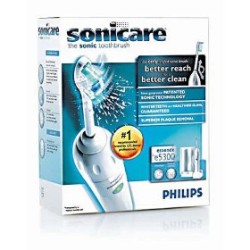Top Class Actions’s website and social media posts use affiliate links. If you make a purchase using such links, we may receive a commission, but it will not result in any additional charges to you. Please review our Affiliate Link Disclosure for more information.

U.S. District Judge Marsha J. Pechman said that there is too much conflict between consumer protection laws in the states of Washington, New Jersey, Connecticut, and New York, which are all cited in the Philips Sonicare class action lawsuit, for a nationwide class to work. The Philips Sonicare class action lawsuit was brought by plaintiffs Amy Coe, Robert Bueso, Sam Chawla and Lance Ng.
Philips was asking that the court “preemptively deny certification of a single nationwide class under Washington law, and to grant summary judgement on Plaintiff Chawla’s Connecticut Unfair Trade Practices Act claim,” Judge Pechman explained. The company also said that the allegations brought by Ng and Chawla fail under statute of limitations rules.
The plaintiffs had said that the Washington law is applicable, that class certification is appropriate, and that it qualified under the statute of limitations.
“First, courts determine whether a actual conflict between Washington and other applicable state law exists,” Judge Pechman said.
“Defendant asserts, and plaintiffs do not contest, that an actual conflict exists between the Washington Consumer Protection Act (WCPA) and the consumer protection laws of other states,” she said.
“Because a conflict exists between [the Washington law] and the consumer protection laws of the various states where the toothbrushes were purchased and used, the court must apply Washington’s most significant relationship test in order to determine which law to apply,” she added. “Instead, Washington’s test requires courts to determine which state has the ‘most significant relation’ to the cause action.”
Judge Pechman explains that none of the plaintiffs live in Washington, but the plaintiffs have argued that Washington law is applicable since Philips has facilities in Washington where the alleged problems were being addressed.
“The crux of plaintiffs’ action involves the marketing and sale of the toothbrushes, which took place in other states,” she explains.
Judge Pechman agrees with Philips Oral Healthcare that the “consumers’ home states have the most significant relationship to their causes of action.”
“Therefore, the consumer protection laws of those states, and not [the Washington law, applies],” she concludes, which is why Judge Pechman denied class certification.
Since the Washington law allegations were dismissed, she says that she doesn’t have jurisdiction “over plaintiff Chawla’s Connecticut Unfair Trade Practices Act” claim, and so that allegation was also dismissed.
She did grant summary judgement concerning the New York General Business Law’s “three-year statute of limitations.”
She rejected the “argument for cross-jurisdictional tolling of the statute of limitations and holds that his claims are time-barred.”
The plaintiffs had purchased several different models of the Philips Sonicare toothbrushes and alleged that the toothbrushes did not live up to the promises claimed by Philips but were defective.
The allegations against Philips Oral Healthcare were trimmed in February, but the Washington, Connecticut, New Jersey, and New York consumer laws survived at the time, but the breach of warranty allegations were dismissed.
The plaintiffs are represented by Daniel E. Sobelsohn of the Sobelsohn Law Firm, Cliff Cantor and Robert I. Lax of Lax LLP, William J. Pinilis of Pinilis Halpern LLP, and Sanford P. Dumain, Andrei Rado and Jessica J. Sleater of Milberg LLP.
The Philips Sonicare Class Action Lawsuit is Coe et al. v. Philips Oral Healthcare Inc. et al., Case No. 2:13-cv-00518, in the U.S. District Court for the Western District of Washington.
UPDATE: The Philips Sonicare toothbrush class action lawsuit was dismissed on Oct. 24, 2014.
ATTORNEY ADVERTISING
Top Class Actions is a Proud Member of the American Bar Association
LEGAL INFORMATION IS NOT LEGAL ADVICE
Top Class Actions Legal Statement
©2008 – 2024 Top Class Actions® LLC
Various Trademarks held by their respective owners
This website is not intended for viewing or usage by European Union citizens.















4 thoughts onJudge Denies Class Cert. to Philips Sonicare Class Action
Has anyone filed a lawsuit against Phillips Sonicare for collection of mold inside the toothbrush that has to be cleaned weekly? It is all over the internet and I have one. This is a health hazard.
UPDATE: The Philips Sonicare toothbrush class action lawsuit was dismissed on Oct. 24, 2014.
I too have complained about Phillips Sonic Care brushes as one chipped my tooth really bad!! I filed a claim almost 2 months ago with the comapny and I haven’t heard anything back as of yet. I don’t have dental care to just go out and get a chipped tooth fixed, so I have to deal with this pain and sensitivity until someone contacts me back about the claim.
were you successful and which attorney did you use